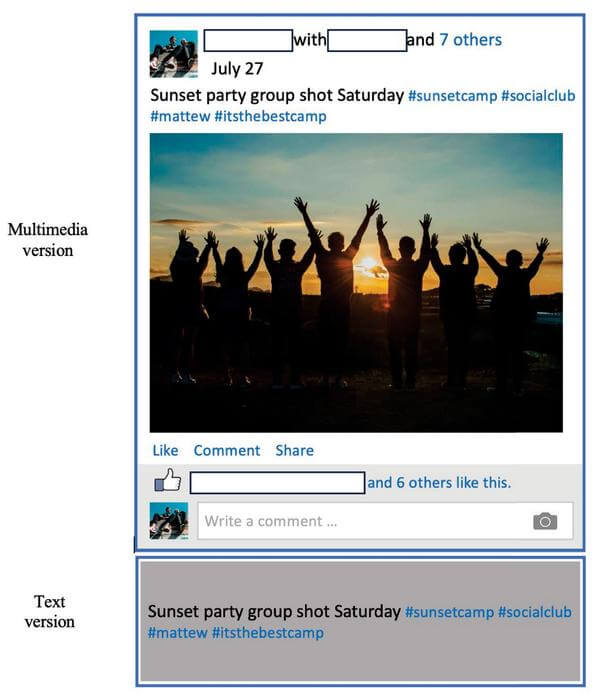ITHACA, N.Y. — Social media posts may not be creating the impression that posters are hoping for, a new study explains. Researchers in New York discovered that social media updates, like adjusting Facebook statuses, often lack context and are seen in isolation, leading to misconceptions about the person posting.
Study authors found that observers generally perceive social media users as more open, having lower self-esteem, and being less reliant on others than the users perceive themselves.
“Can people form accurate impressions about us from our social media posts?” the researchers from Cornell University say in a media release. “Our study finds that there are substantial discrepancies between how people view Facebook users based on their status updates and how the users view themselves.”
To arrive at these findings, published in PLOS ONE, the team surveyed 158 undergraduate students. These students answered questions about their characteristics, including extraversion, openness, connectedness, self-esteem, independence, and interdependence. They also shared their last 20 Facebook status updates. These updates were then reviewed by two separate groups of participants.
One group assessed the updates in a multimedia format, including text, images, and hyperlinks. The other group saw only text versions. The study showed that observers’ views of Facebook users often differed from the users’ own self-perceptions. For instance, users were seen as more open and having lower self-esteem than they viewed themselves. However, both observers and users had aligned perceptions of connectedness, suggesting that a key goal of social media is to foster connections.

Interestingly, observers who viewed multimedia updates had perceptions more aligned with the users’ self-views compared to those who saw text-only updates.
The research team concludes that these findings shed light on the complexities of online self-presentation and impression formation. This understanding is crucial for enhancing communication and relationships in the digital age.
“Multimedia channels make the impressions more accurate, and user characteristics related to relationship-building, gender and ethnicity are more accurately perceived,” the team concludes.
You might also be interested in:
- COVID lockdowns ruined our perception of time, leading to more mental health issues
- Job seekers still face bias when posting about mental health on social media
- Dress to impress? Workers wearing designer brands less likely to be seen as team players
South West News Service writer Isobel Williams contributed to this report.

